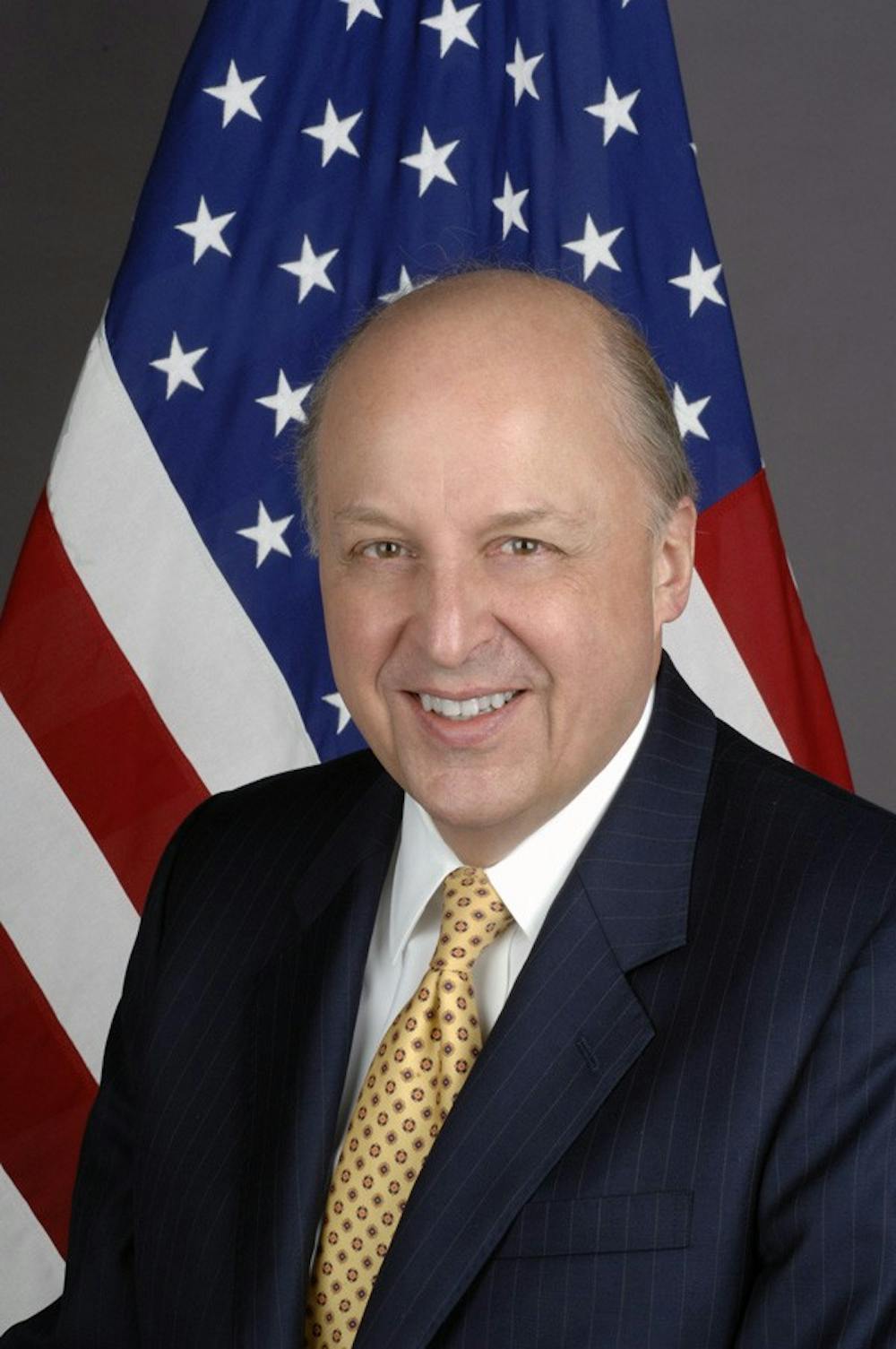The Batten School hosted former ambassador and statesman John Negroponte Wednesday for a talk about global security and international relations.
“If you’re thinking about international relations and security, you have to think about what kind of world we live in and how we want to move ahead,” Negroponte said.
Negroponte served as U.S. ambassador to the United Nations, U.S. ambassador to Iraq, deputy national security council advisor and deputy secretary of state. He spoke about the creation of the modern world order following World War II, the role of the United States in foreign affairs since and the future of diplomacy.
“How [international relations] goes in the future is going to depend a lot on how we manage our relationships with some of the other large countries in the world and our relationships with some of the other rising powers,” Negroponte said. “Can we manage world affairs in such a way as to avoid conflict and make… relationships [with other great powers] positive?”
Negroponte discussed U.S. foreign relations with China as an example of carefully managing relations with other world powers. He said American presidents since the Nixon administration have made relations with China a priority.
Negroponte also stressed the need for a policy regarding Russia’s actions in the Ukraine.
“This is the most important … issue on the president’s plate,” he said. “Where is this going to go, and how are we going to deal with it?”
Negroponte also spoke on stability in the Middle East and South Asia, focusing on issues regarding Syria, Iraq and Egypt.
“Eventually we’re going to have to come to grips with the question of Syria and what we’re going to do about it,” Negroponte said.
He said the situation in Syria presents the United States with a political conundrum involving the Islamic State and the civil war in Syria.
“We’re against ISIS, but [we’re also] opposed to Bashar al-Assad’s regime, which ISIS is also fighting against,” Negroponte said.
Negroponte said members of the American government need to carefully consider the ramifications of intervening in non-democratic regimes.
“American presidents, diplomats and policymakers will always try to promote democratic principles when possible, but sometimes you have to make the choice between the lesser of two evils,” Negroponte said.
Egypt and Iraq are both in need of stability as well. Egypt needs help rebuilding their economy after losses in revenue due to a decline in tourism, Negroponte said.
“To me, the big single country in the [Middle East] region that we need to focus on carefully is Egypt. What can be done to stabilize and restore [Egypt] to economic and political health?” Negroponte said.
Negroponte also stressed the importance of economics in foreign affairs, citing Mexico as a primary example.
“When it comes to policy, we can’t forget the economic component,” he said. ‘[It’s a] huge help in relations if [two] countries have a free trade agreement.”
Negroponte also discussed the future of diplomacy in the United States and abroad.
“There’s a lot of room for diplomacy here — lots of room,” he said. “It’s not as if diplomacy is dead. There are lots of opportunities out there for helping devise productive solutions to the situations that arise.”
First-year College student Jordan Harris said he felt Negroponte’s discussion was encouraging for students.
“[I] thought it served as real encouragement for people attending the speech who want to change and influence public policy in our generation,” Harris said.
Batten Dean Gerry Warburg, a senior lecturer, said this kind of discussion is very valuable to students, particularly those in the Batten School.
“Foreign policy and diplomacy is a huge part of both the student educational and training experience here at the Batten School,” Warburg said. “Having the opportunity to interact with and pose questions to some of the great practitioners of our generation is a really invaluable experience.”





